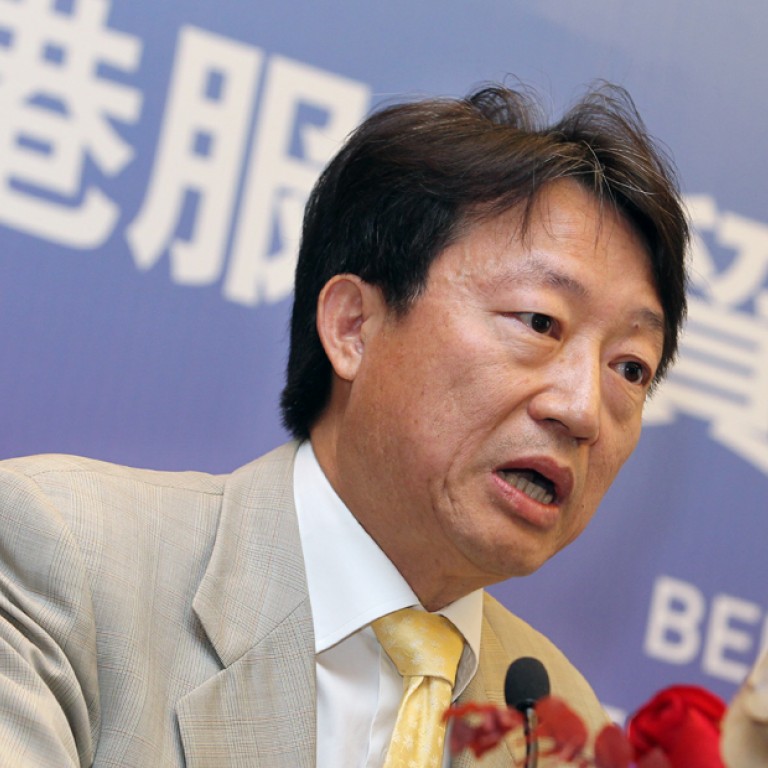
Schools of law hit out at Law Society's plan to run its own qualifying exam
Solicitors' body debates setting up its own qualifying exam, but three major law schools say its reasoning is 'unclear and unconvincing'
The city's three major law schools have united to oppose the Law Society's "unclear and unconvincing" plan to set up its own qualifying examination for aspiring solicitors.
In a rare move, the law faculties of the University of Hong Kong and Chinese University issued a joint statement with City University's school of law this week. In it, they argued that the plan floated by the legal body would not produce better lawyers, "nor is it in the best interest of Hong Kong".
The statement was submitted to the Legislative Council's panel on administration of justice and legal services, which is scheduled to discuss the matter on Monday.
At the centre of the row is the universities' defence of a three-decades-old system called the postgraduate certificate in laws (PCLL). The system trains better-performing graduates of Bachelor of Laws or postgraduate Juris Doctor degrees for a year before they become solicitors or barrister, regulated respectively by the Law Society and Bar Association. The schools base the curriculum on benchmarks set by the professional bodies.
"The system has worked well," the schools said. "We do not support the … proposal, the justification of which is unclear and unconvincing."
The society said a "common entrance examination" might provide more opportunities for students to become lawyers, so it was undertaking a month-long consultation on the idea.
It said there was no intention to abolish or replace the PCLL, though society president Ambrose Lam San-keung had questioned the certification because the universities that provided the training also ran the assessments students had to pass.
The society said it would comment on the latest development after Monday's Legco meeting.
HKU said that from the next academic year, it would set aside places for students who failed to enrol in the PCLL at the first opportunity, with places allocated based on criteria such as time spent working at a law firm.
"When we raised the possibility of enlarging the number of entrants to the PCLL, the Law Society replied that it did not have the manpower or resources to monitor the additional number of students," the statement said.

